Nile Crocodile Hatching From Egg
04.29
Diposting oleh Melany Christy
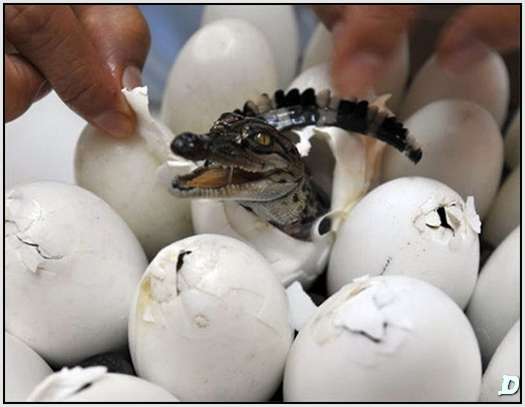
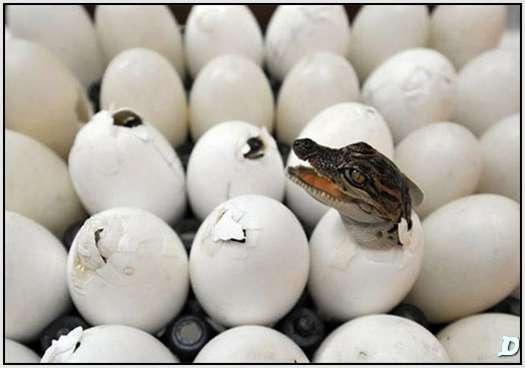
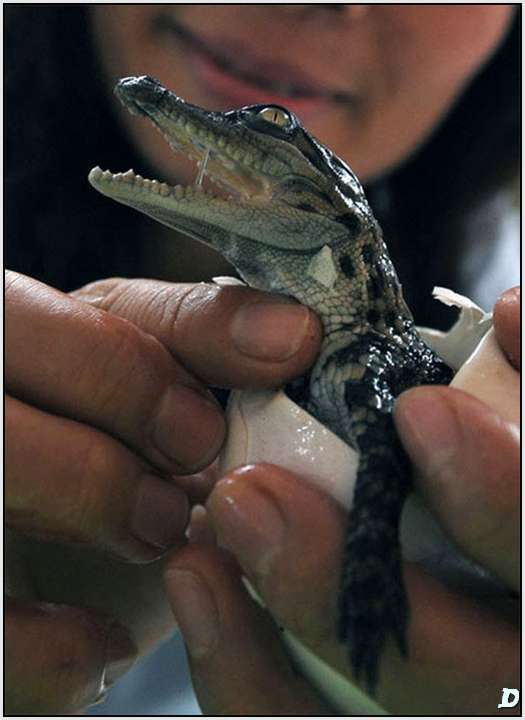
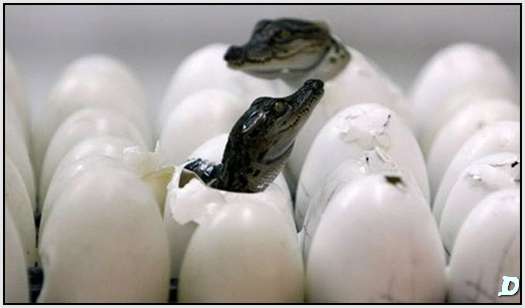
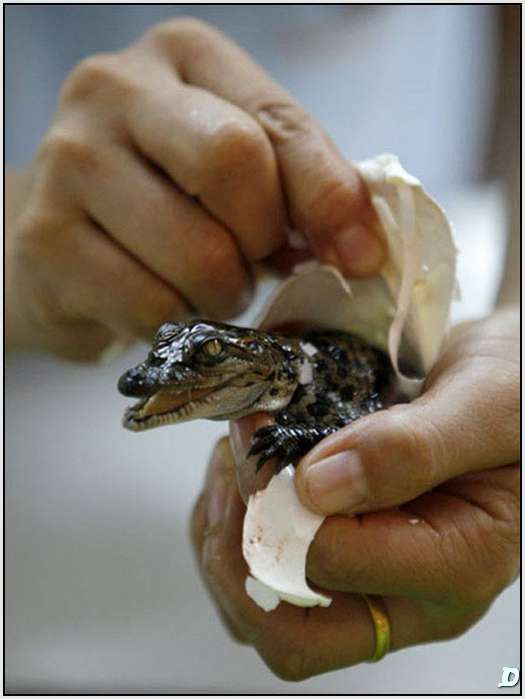
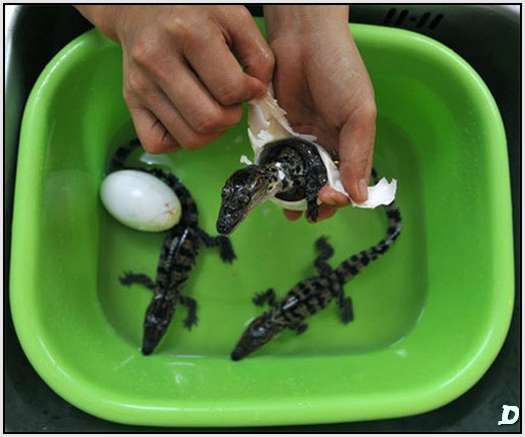
Crocodiles embryos do not have sex chromosomes, and unlike humans sex is not determined genetically. Sex is determined by temperature, with males produced at around 31.6 °C, and females produced at slightly lower and higher temperatures. The average incubation period is around 80 days, and also is dependent upon temperature.
Nile crocodiles may possess a form of homing instinct. Three rogue saltwater crocodiles were relocated 400 kilometres by helicopter in northern Australia but had returned to their original locations within three weeks, based on data obtained from tracking devices attached to the reptiles
Crocodiles do not have sweat glands and release heat through their mouths. They often sleep with their mouths open and may even pant like a dog
There is no reliable way of measuring crocodile age, although several techniques are used to derive a reasonable guess. The most common method is to measure lamellar growth rings in bones and teeth—each ring corresponds to a change in growth rate which typically occurs once a year between dry and wet seasons
12 April 2010 pukul 22.14
Maaf kalau komentarnya berbeda dengan posting, tapi kami dari pihak Zona Musisi hanya ingin memberikan pemberitahuan bahwa blog kami sudah ganti URL menjadi http://www.zonamusisi.com.
Kami melihat di blog Zona Musisi yang dulu (http://zonamusisi.blogspot.com) ada backlink dari blog ini, maka dari itu kami berharap pemilik blog bisa mengganti URL kami menjadi http://www.zonamusisi.com. Jika anda sudah selesai melakukan pergantian nama, anda bisa kontak kami langsung di :
YM : zhaperuza_diza
GMail : zonamusisi@gmail.com
Twitter : http://www.twitter.com/zonamusisi
Mohon balasan dan partisipasi untuk mendukung blog kami agar lebih baik lagi. Terima Kasih.